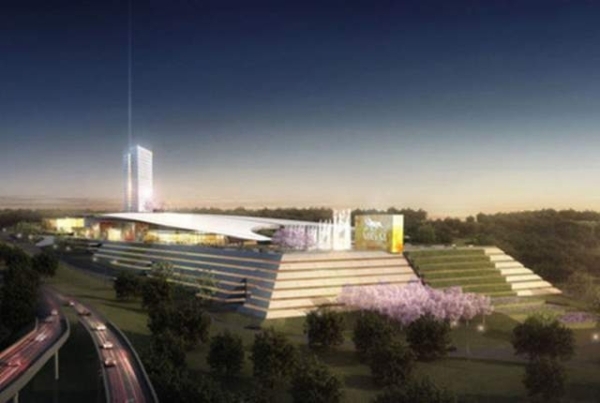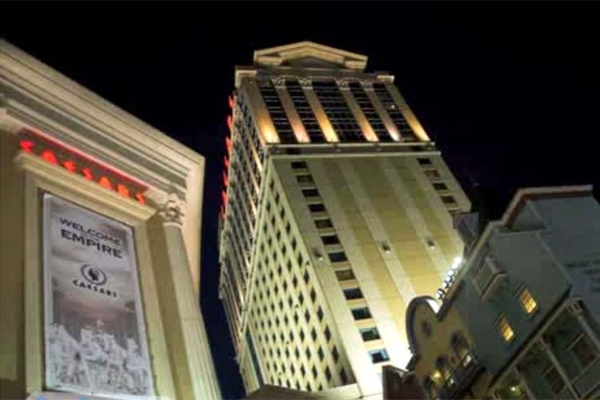Northeast casino expansion good for slot companies, bad for Atlantic City


Eight casino projects in the Northeast that are under construction or in planning is great news for Nevada’s slot machine industry, which will have to fill orders for some 20,000 games as the developments come on line over the next three years.
For Caesars Entertainment Corp., and operators of older casinos in Atlantic City, Philadelphia and neighboring destinations, the outlook is not quite as rosy.
Some casinos may go out of business.
That was the assessment of Moody’s Investors Service, which estimated the new properties will increase the already saturated Northeast casino market by 30 percent if all the resorts in New York, Massachusetts, Pennsylvania and Maryland — a combined $5.5 billion in construction costs — come to fruition.
“A number of incumbents will feel the heat more keenly in markets that are already overcrowded and where existing casinos have already been carving costs to stay ahead,” Moody’s gaming analyst Peter Trombetta wrote in a report distributed to investors on Monday.
Atlantic City, which saw four casinos close in 2014 due to capacity issues, financial troubles and competition from nearby gaming states, will face additional pressure. Three casino developments are planned for parts of New York that could siphon customers from New York City away from the Boardwalk.
Caesars closed the Showboat Atlantic City in August 2014 but still operates three resorts in the market. Meanwhile, the company’s Harrah’s Philadelphia Racetrack Casino could lose business to a new Philadelphia casino scheduled to open by 2018.
Atlantic City’s annual gaming revenue tumbled 52 percent from an all-time high of $5.2 billion in 2006 to $2.7 billion in 2014. Even with the closures, Atlantic City gaming revenue is down 8 percent in the last 12 months, according to Moody’s. Three of Atlantic City’s eight casinos are part of bankruptcy proceedings, Trump Taj Mahal and the Caesars-owned Caesars Atlantic City and Bally’s Atlantic City.
“As the number of casinos shrink, some of the remaining casinos have seen revenues increase,” Trombetta wrote. “But we expect increased competition will keep the heat on incumbents, and that number of casinos in Atlantic City will likely continue to shrink.”
The expansion is the largest in the U.S. since Ohio opened 11 casinos — four stand-alone and seven racetrack casinos — starting in 2012 that included more than 18,500 slot machines.
The winners are the slot machine manufacturers. Moody’s cited International Game Technology, Scientific Games Corp., and Aristocrat Technologies as the primary beneficiaries.
“The new casinos will be ordering some 20,000 new slot machines, boosting revenues for manufacturers that have been hit by slowing gaming revenue as existing casinos delay replacing older machines,” Trombetta said. “The biggest suppliers will likely benefit the most.”
The first hit will be felt in Maryland late next year.
MGM Resorts International is building the $1.2 billion MGM National Harbor across the Potomac River 10 miles from Washington, D.C. The resort, attached to the National Harbor development, is expected to draw business from wealthy northern Virginia suburbs, but will could steal customers from the Maryland Live! casino in nearby Anne Arundel and Caesars’ Horseshoe Casino Baltimore, which opened last year.
MGM’s casino will have 3,600 slot machines and 36 table games, but other nongaming amenities are planned. This week, the property announced a line-up of celebrity chefs — including Jose Andres, Marcus Samuelsson, and Bryan and Michael Voltaggio — who will operate the planned restaurants.
“We would expect a more material negative impact from the MGM National Harbor, compared to the opening of Horseshoe Baltimore due to its size and location,” Trombeta said. “Maryland Live! has the most to lose.”
But turnabout can be fair play.
The Cordish Cos., which owns Maryland Live!, is in a joint venture Greenwood Racing Co. to build the $400 million-to-$500 million Live! Hotel and Casino in Philadelphia. State gaming regulators approved the project in 2014, but construction has been held up due to lawsuits and local approval.
The development, which is expected to house 2,000 sot machines and 125 table games, will compete against four other casinos in the populous Philadelphia market. But in reality, the targets are on the SugarHouse Casino, which is just four miles from the Live! location, and Harrah’s Philadelphia. The Caesars-owned casino and harness racetrack, is not part of the Caesars Entertainment Operating Co. bankruptcy.
“Moreover, Harrah’s Philadelphia has consistently under performed its competitors in the market over the past two years,” Trombeta said.
Howard Stutz’s Inside Gaming column appears Wednesdays and Sundays. He can be reached at hstutz@reviewjournal.com or 702-477-3871. Find on Twitter: @howardstutz.












